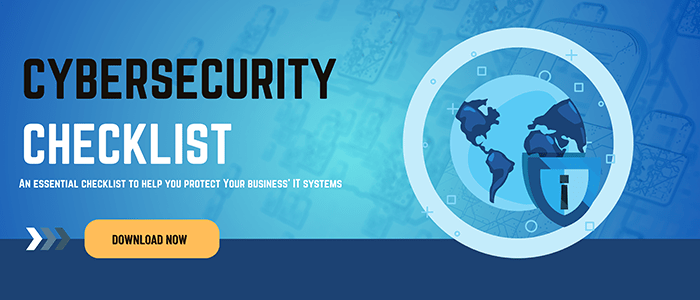Proactive and Reactive Networks

Summary: If you’ve ever been in a situation where your network goes down, chances are you will have regretted reactively dealing with your network. Dave Hodgden and Lonnie Cherry from Portsmouth Computer Group discuss why being proactive with your network is the best solution. Listen or read more to find out about proactive and reactive networks.
Mike: It’s Tech Tuesday, as we do every Tuesday. We’re joined by the folks from the Portsmouth Computer Group. You can always check them out at pcgit.com. They’ve got convenient offices in Portsmouth and Dover. Call them up in Portsmouth at 603-431-4121 and also in Dover at 603-750-0101. Speaking of easy numbers to remember, Dave, that’s an easy number to remember.
Dave Hodgdon: It’s easy to remember. We kept it that way, Mike.
Mike: It is an easy number to remember. Dave and Lonnie are here from the Portsmouth Computer Group. Good to see you guys. Dave and Lonnie, good to see you back again.
Dave: Thank you, Mike.
Lonnie Cherry: Morning, Mike.
Mike: In the hot seat.
Dave: Alright. (laughs)
Mike: In the hot seat. So, Dave, Tech Tuesdays, Tuesday’s tech day here on WTSN. We talk about things about networking, people’s businesses, how to make sure things are up-to-date and backed up. And we talked a little bit about wireless last week, which is kind of interesting. What are we going to talk about today, a little bit?
Proactive and Reactive Network Set-ups
Dave: We’re going to talk about the differences, Mike, of being proactive and reactive with your network. And we feel it’s imperative for businesses to not be reactive because it’s like a fire drill. Something happens you have no idea, your call, its panicking… typically it’ll cost more money. We think of being reactive . . . it’s like the weather, you never know. They say a snow storm’s coming. Sometimes it happens, sometimes it doesn’t, how much snow you going to get . . . get it?
Mike: Sure, sure.
Dave: Think about your car. If you’re proactive with it, you maintain it, you change your tires, you’ll have less issues, it’ll be less costly, and, the big thing, it’s safer to drive. And that’s what we’re trying to do with our network.
Mike: So, you’re trying to talk about business networks and make sure that people are proactive as far as reacting to problems. So, Lonnie, let’s talk about some examples, I guess, of how being proactive can help a business, I guess.
Signs of a Reactive vs. Proactive Network
Lonnie: Well, let’s first talk about the reactive part of it. For a lot of businesses, you don’t want to come in and find one of your systems down and now you’re calling us, and we’re trying to figure out what the problem is. So, you want to be proactive, of course.
Mike: Sure.
Lonnie: And that’s having us come in and look at your network ahead of time, look at the small problems. And in a lot of cases, we remediate problems before they become larger ones, or outages, for your network.
Mike: What kind of problems would people have, do you think, that they would probably, eventually call you guys to come by and take a look at it?
Lonnie: There’s a gambit of things that could go wrong. Hard drive failure, temperature on a server goes up, you name it, we’ve seen it.
Dave: Can’t print, can’t get online . . .
Lonnie: Can’t print, can’t get online, your ISP is down . . . stuff like that.
Mike: Yeah. You look at yesterday’s Amazon Prime day, we talked about this before we went on the air. Their system went down big time yesterday. Dave, can they go down with millions and millions of people trying to log on at the same time?
Dave: Absolutely. And I mean a lot of it depends on the carriage, there’s only so much traffic they can take.
Mike: Yeah.
Dave: And they kind of use this word “resiliency” and yell “where is the backup?” So, Amazon, I mean, that’s just a different animal from what we deal with. But, I mean, imagine how many millions and millions and millions of people are on there. This must’ve been a tough time for Amazon during that timeframe.
Mike: Yeah, it was just interesting to see that major website go down because of so much traffic. But I guess people have to be aware of traffic on their network as well, make sure things are upstanding, upholding, and altogether, I would imagine.
Dave: Yeah. That’s the other good thing of being proactive, where you’re able to kind of watch what’s going on, how much is being used and leverage that. Because a lot of times, the bandwidth, Mike, they might have a speed of twenty over ten. We can see that they’re pushing that threshold and we say “You know what, let’s call Comcast and let’s go over the fifty over twenty or the hundred over fifty.” So those are nice things we can keep an eye on for you.
Proactive Security Updates
Mike: What about security updates? Now that’s something that you can be kind of proactive as opposed to reactive, right?
Lonnie: Oh, absolutely. There’s a lot of trends out there in the industry, and the proactive thing that we do at PCG is they make sure those security updates are current. We make sure that your systems are getting patched on a regular schedule basis, so you’re not going to be caught with your pants down, per se . . . [crosstalk]
Mike: Is that difficult for me to do, Lonnie, though? I mean, to keep things updated, or to create these updates and patches?
Lonnie: Not necessarily. There are things that we can’t definitely schedule for that just kind of happen at the moment, but in a lot of cases we know the trends, they’re coming out slowly, were making sure these things don’t happen as part of our proactive service.
Mike: I know on our personal computers, we’re always getting messages to update Windows. So, we should really, as a personal computer user, we should always continue to update whatever we have . . .
Lonnie: Absolutely.
Mike: . . .all the time.
Lonnie: Absolutely.
Dave: Just verify it’s the right update and you’re not getting bamboozled by somebody from. . . right.
Mike: Yeah, right, right, right. That Nigerian prince that we keep talking . . . (laughs)
Dave: [crosstalk] He wants that hundred thousand dollars from us.
The Benefits of Being Proactive
Mike: So, let’s talk about what kind of services or issues that you are looking into in order to be proactive for the client. Give our listening audience why being proactive is advantageous over just waiting for things to happen, I guess.
Dave: One of the biggest things that proactive service gives us the opportunity to do is test your backups, make sure your backup and recovery plan is solid and that the data that you’re having us back up for you to secure your network is actually valid or not corrupt or there’s a problem with it, or that we can bring back that data that you need that’s critical to your business.
Mike: And Dave, if I’ve learned anything from you guys in the last month or so, it’s that backup is crucial. Backup assist is the number one priority.
Dave: Yeah. Every business . . . the data is critical, Mike. And if you’re down for an hour, two hours a day, think about what it’s costing your payroll.
Mike: You’re losing productivity.
Dave: You’re losing your customer satisfaction, you’re not able to run up business, and the numbers are staggering. So, we call it your recovery time objective, Mike, and a business needs to know what’s the threshold they can be down. And that’s why, when you’re proactive, we can set that, is it one hour, is it two hours, is it four hours, and it really makes a big difference.
Mike: We’re talking to the guys from PCG, Portsmouth Computer Group. Check out their website, pcgit.com. They’ve got convenient locations in Portsmouth and Dover. You can always call them in Portsmouth at 431-4121 and in Dover, 750-0101. Dave and Lonnie are here today, we’re talking about being proactive and reactive with your services and your networks and how to back up things and make sure things are backed up, that crucial data. So, let’s talk about what benefits does Portsmouth Computer Group give their clients for being a proactive client, I guess. Let’s talk about that for a second.
Dave: [crosstalk] Lonnie can, we feel our clients. We give them a dedicated phone number so we answer our phone. So, it’s just on a generic phone that anyone is going to answer, so they get their dedicated number with a live body.
Mike: Mm-hmm (affirmative).
Dave: They’ll get a dedicated account rep, we call it as your own personal concierge. You’ll get instant access, within five minutes, to our help desk. So, in today’s role people just can’t wait, so if something needs to happen, they want to know an expected time . . .
Mike: Sure.
Dave: So that’s why they do it with that. They get a dedicated network engineer. Clients love Lonnie, that’s why he’s here. That makes a big difference, and it’s nice to have that person knowing your network. And I think one of the big things that they get, we give them what’s known as strategic technology expert, that’s helping them with the planning, the budgeting, and where that business wants to go. We kind of have to know what they want to do in order for us to put the technology in there and it really helps out on the bottom line, helps with accounting, helps with HR, and helps with sales.
Mike: If you had to put together, Lonnie, most frequently asked questions or problem that you deal with, what’s number one? What’s the top of the list, do you think, as far as people asking for your service as to what they need help with at that time?
Lonnie: I think the biggest one is their email.
Mike: Email? Yeah.
Lonnie: Everyone always seems to have a problem with email. “This mailing list is just not there, it went here, why’s it in my junk folder?” Email is probably . . .
Dave: I agree.
Lonnie: . . . the biggest one for me, at least, that I get asked questions for.
Mike: And are those easily fixable?
Lonnie: Oh, absolutely. In a lot of cases email problems are small ones.
Mike: Yeah.
Lonnie: Definitely.
Mike: Do you think it’s a user error, ever? (laughs)
Lonnie: Oh no, never. (laughs) No, it’s never a user error.
Mike: (laughs) No, it’s never a user error, Dave. No, never, never. Final words, Dave, today? Any final words for our listeners this morning?
Dave: As we’ve always said, PCG has always taken a nice approach to IT. We believe in the personal approach, we have systems in place to keep it safe, and, again, our goal is to give the business owners that feeling of “we’ve got you covered”, peace of mind, and it’s a win-win situation for both sides.
Mike: Yeah, and you got a great website with a lot of great information out there if people want to make sure that they want to be secure from all the cyber-attacks.
Dave: Right.
Mike: Pcgit.com, a lot of great support right there. You can call Lonnie, Dave up in Portsmouth at 603-431-4121 and Dover 603-750-0101. Thank you, guys, for joining us again. Tech Tuesday.
Dave: Thank you.
Lonnie: Our pleasure.
Mike: From Portsmouth Computer Group, Lonnie and Dave, with us this morning on news talk 98.1 WTSN.




